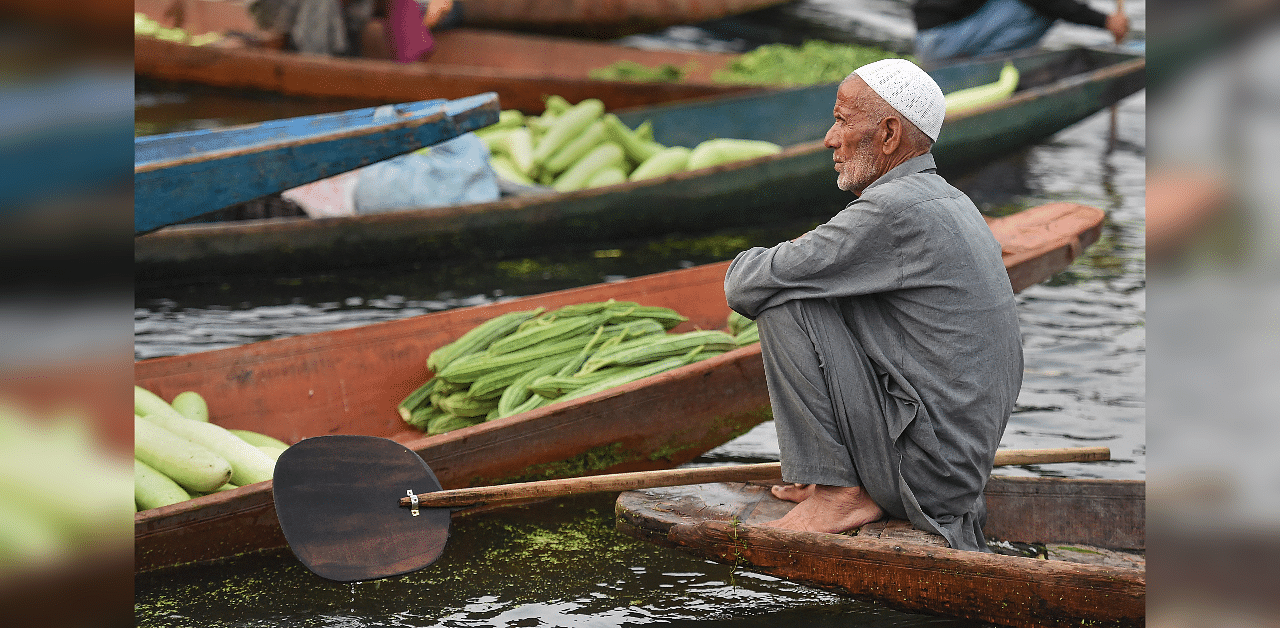
A year since the abrogation of special status of Jammu and Kashmir, a sense of betrayal continues to prevail among people in the Valley. All the three regions of the erstwhile state (Jammu, Kashmir and Ladakh) have more or less the same concerns — protection of land and job rights and restoration of statehood.
Beneath the uneasy calm, people in the Valley are still under shock and their woes have only been multiplied by the Centre’s decision to give domicile rights to thousands of non-locals.
“The last one year has been a nightmare for every Kashmiri. We are even struggling for basic necessities. Our economy, education... everything has been shattered and there seems to be no hope for the future,” Riyaz Ahmad, a university student told DH.
His views were echoed by Rais Beig, a businessman from south Kashmir’s Anantnag district. “People in Kashmir are desperate to restart normal life as one year of lockdown is a long time. Even if New Delhi humiliates Kashmiris further, we won’t protest as of now,” he said.
However, Beig said, the irrefutable reality that people from outside J&K are now domiciles has caused anxiety among Kashmiris and “a demographic change is around the corner.”
Common issues
While the people in Kashmir unanimously opposed the Centre's move, many in Jammu were upbeat that J&K would no longer have the special status. A common refrain in Jammu went: “A historic wrong has been righted”.
However, one year later, the politicians, traders and youth in Jammu appear less optimistic, as they fear losing land, business and jobs because of the new domicile rules.
Sanjay Gupta, a trader from Jammu, says it is unlikely that outsiders will procure land or start a manufacturing unit in the Kashmir valley because of the situation there. “The intrusion of people from outside will affect the Jammu region most. We support abrogation of Article 370, but without amendments to the domicile rules. Now Jammu will end up with losses,” he told DH over phone.
Jammu-based political parties like National Panthers Party and Dogra Sadar Sabha have been more vocal about demanding job and land rights. “We welcome the decision of scrapping Article 370 to make the situation better in J&K, but that doesn’t mean it will be free for all,” said Gulchain Singh Chara, former minister and chief of Dogra Sadar Sabha, a 115-year-old socio-political organisation.
“No outsider should be eligible to get government jobs or purchase land here,” he demanded.
And a year after Ladakh was carved out as a separate Union Territory, its two districts — Leh and Kargil — observed a complete shutdown last month against “discrimination in jobs and recruitment.”
Jigmat Paljor, President, Ladakh Students Welfare Society, says after the establishment of the Union Territory of Ladakh, they expected job creation would increase but “nothing has happened so far.”
He said the government should come up with a domicile law for Ladakh after consultation with all stakeholders. “Land, jobs, environment and culture are the demands of students and the whole of Ladakh region,” he says.
According to Rekha Chowdhary, former political science professor at Jammu University, there are concerns that now cut across all three regions of the former state. “Till now, there were no major political concerns which were common to Jammu, Kashmir and Ladakh. But now demand for restoration of statehood and a domicile law is being made by most of the parties in Jammu, Kashmir as well as Ladakh,” she said. Chowdhary said this unprecedented situation only arose in the aftermath of the abrogation of Article 370.